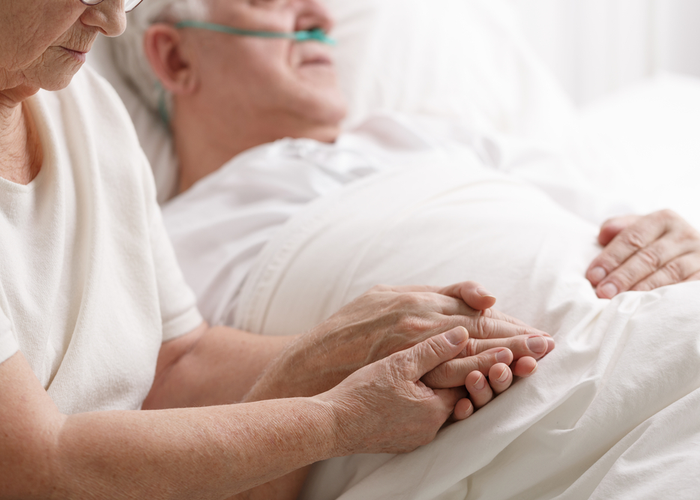
During their cancer journey, many patients will experience pain as a symptom of their diagnosis. Cancer pain comes in different forms but can also be managed successfully with regular medication suitable for an individual undergoing cancer treatment.
To ensure maximum relief for patients, the combination of numerous medications is common as is radiotherapy, surgery, hormone therapy and chemotherapy.
We talk to cancer survivor Warren Turner about his experiences with cancer-related pain, and take a closer look at the work of cancer-pain researcher Dr Laura Edgington-Mitchell.
Warren’s Story
For Port Macquarie local Warren Turner, being active and training for the 2020 virtual City2Surf is his main priority now that he’s been given the all clear from Metastatic Melanoma . Having already fundraised an astounding $4,948 for Cure Cancer’s innovative cancer researchers, he’s giving his all to taking part in the race but the last few years have been painful to say the least.
‘I started experiencing pain in my lower rib cage in mid-2018, around 17 months after I’d had an induced heart attack,’ he says. ‘Initially I thought the pain was muscular, but potentially heart-related. Around the same time, I had pain in the lower right of my pelvic bone, which I self-diagnosed as slight hamstring tear or possibly a sciatic problem.’
‘I’d had the pains for about three weeks when we were asked by friends for dinner. I felt a bit stiff and sore whilst getting ready and found it difficult getting in and out of the car, which seemed odd. Once in the restaurant, the pain in my sit bone worsened and I started feeling unwell and achy all over – I even struggled to enjoy the wine, which was unusual for me!’
With the pain unbearable, Warren decided to head to hospital on the journey home. However, the results he received were the last thing he expected. ‘I was admitted immediately and underwent lots of tests. I was still adamant it was muscular pain until the doctor told me they had seen something in one of the ultrasounds and would need to do further tests. I received the crushing news later that night that I had ‘The Big C’, which was later confirmed by a brilliant Oncologist to be Stage 4 Metastatic Melanoma.’
Over the next five to six months, Warren’s cancer-related pain worsened considerably, noticeable at sites where a specific cancer had developed.
He explains, ‘Upon noticing my limp, my Oncologist confirmed that my self-diagnosed hamstring injury was in fact pain related to my cancer. My wife Coleen even had to buy a small cushion for my right bum cheek, because of the particularly aggressive cancer at that site. I was on painkillers from the start but at times I felt that there was no relief. I was then prescribed Endone to take on a ‘needs only’ basis.’
Because of recently approved cancer drugs, Warren has successfully managed to overcome his cancer battle and is now in remission .
‘I’m feeling so good that I’m even planning to take part in this year’s City2Surf – it’ll be my 20th time in the race! However, I’ve learned a lot about what it means to experience cancer along the way. Although I was aware that cancer patients experience pain as a symptom of their illness, I didn’t understand how bad this could get. As a result, I’m much more understanding, caring and compassionate towards cancer sufferers than I was before my own cancer journey.’
‘Supporting research into cancer-related pain is absolutely paramount. Brilliant researchers like Laura are doing everything they can to alleviate pain and suffering, and it’s up to us to make sure their work can continue.’
‘I wouldn’t be here today without the cancer researchers and medical staff who treated me - to all of them, I give my sincerest thanks and praise for saving my life.’
The Research
Based at the University of Melbourne’s Bio21 Institute , Dr Laura Edgington-Mitchell has this year received Cure Cancer funding for her work into finding new strategies for the relief of cancer-related pain .
‘Most cancer patients experience pain that worsens as the disease progresses, like Warren,’ explains Laura. ‘It is largely managed by administration of opioids such as Endone, but these lose their effectiveness over time and have debilitating side effects.’
With her colleagues, Laura is currently investigating pathways which contribute to cancer pain, with the aim of finding new strategies that can provide relief, especially for patients with advanced disease. The team will use oral cancer, one of the most painful forms, as a model for study, but are hopeful that their findings will translate to other painful cancers.
‘Using both human oral cancer biopsies and laboratory models of oral cancer, we’re examining key proteins in this pathway to test whether inhibitors of it can provide relief,’ Laura says. ‘In addition, we’ll hypothesise that the proteases and PAR2 pathway could contribute to the development or progression of cancer.’
If her pre-clinical studies are successful, they could pave the way for future clinical trials. ‘Ideally, the drugs that provide pain relief would simultaneously prevent or halt the growth of tumours.’
‘It’s fantastic that Cure Cancer provides support for early career researchers,’ says Laura. ‘We cannot do the work we do without such generous donations. I’m extremely grateful for Cure Cancer’s support and confident it’ll help drive my research towards clinically meaningful outcomes.’
Research like Laura’s cannot continue without your support. Please consider making a donation today so that Cure Cancer’s researchers can make this the last generation to die from cancer.
Sources:
Better Health